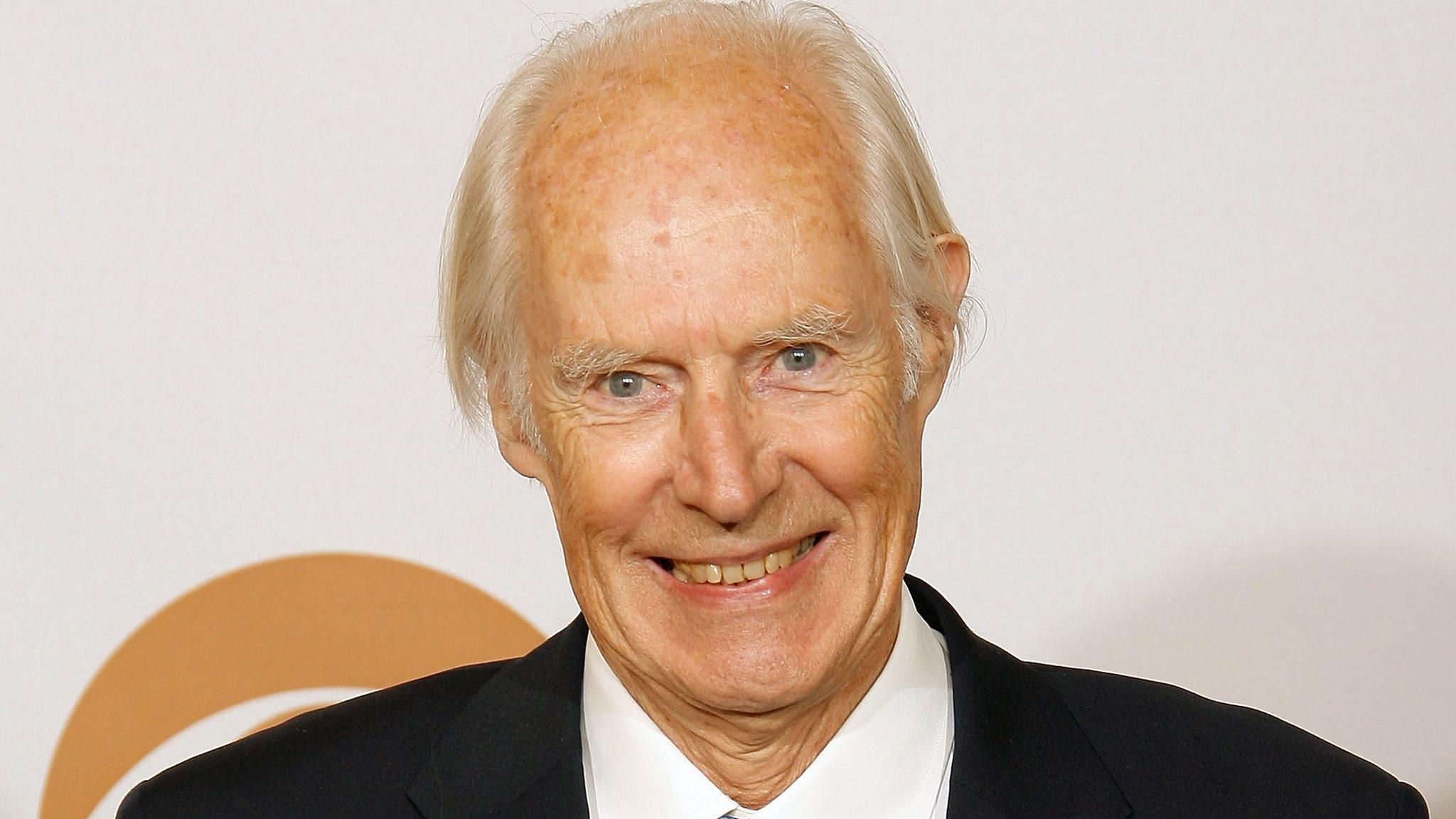Sir George Martin, the 'fifth Beatle' dies, aged 90
- Published
Record producer Sir George Martin, known as the "fifth Beatle", has died, aged 90.
His family thanked "everyone for their thoughts, prayers and messages of support" after his death at home on Tuesday, his manager said.
Beatles drummer Ringo Starr broke the news on Twitter, external and led tributes, saying Sir George "will be missed".
Sir George signed The Beatles and produced more than 700 records.
He also worked with artists including Gerry and the Pacemakers, Dame Shirley Bassey and Cilla Black.
"I have so many wonderful memories of this great man that will be with me forever," said Sir Paul McCartney in a statement on his website, external.
"He was a true gentleman and like a second father to me. He guided the career of The Beatles with such skill and good humour that he became a true friend to me and my family. If anyone earned the title of the fifth Beatle it was George.
"From the day that he gave The Beatles our first recording contract, to the last time I saw him, he was the most generous, intelligent and musical person I've ever had the pleasure to know."
Live: Tributes paid to Sir George Martin
Sir George Martin 'made' The Beatles
Obituary: Sir George Martin and the sound of British popular music
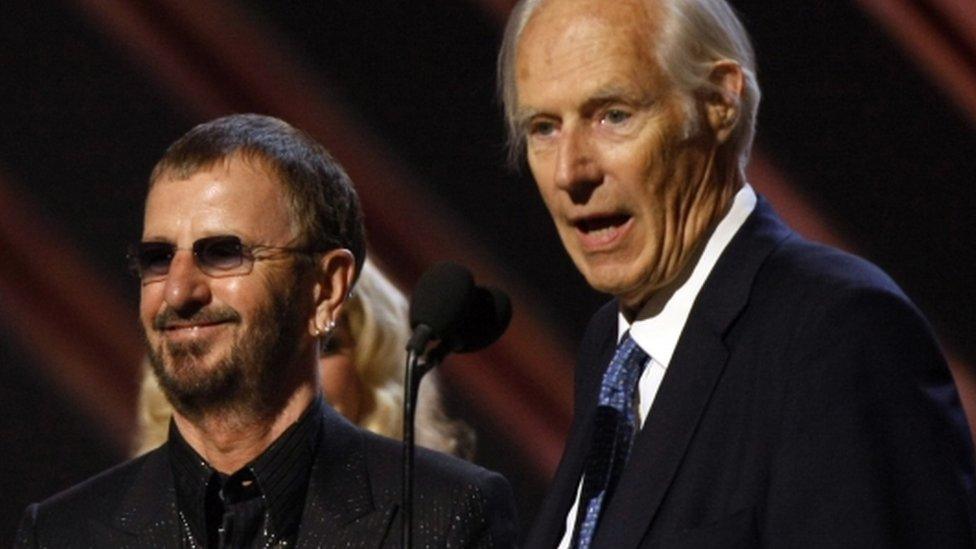
Ringo Starr and Sir George Martin share the stage at the 2008 Grammy Awards in Los Angeles
Manager Adam Sharp said: "The family would like to thank everyone for their thoughts, prayers and messages of support.
"In a career that spanned seven decades, he was an inspiration to many and is recognised globally as one of music's most creative talents. He was a true gentleman to the end."
Sir George Martin 'the musical genius'
The Beatles: The story of Love Me Do
Sir George Martin: Global praise for 'fifth Beatle'
Sir George Martin's Caribbean legacy
A carpenter's son from Holloway in north London, Sir George helped The Beatles achieve global success as the head of the Parlophone record label after hearing their demo tape in 1962.
He took them from their mop-top pop recordings of the early 1960s to the psychedelia of Sergeant Pepper.

Analysis
By Mark Savage, BBC Music reporter
Without George Martin, The Beatles would have been a very different band.
His calm demeanour and technical expertise allowed the band to experiment and indulge in their wildest and most elaborate ideas. On many occasions, Lennon and McCartney would entrust him with arranging their songs - the string quartet on Yesterday is all his work, while he plays the piano solo on Misery.
Famously, Martin walked out of the band's first recording session at Abbey Road, leaving his engineers to supervise the recording of Besame Mucho while he went to the canteen.
But when the group started playing Love Me Do, a tape operator was despatched to fetch him. It was the start of the most productive producer-musician relationship in modern pop - although The Beatles weren't quite ready to accept this suave Londoner to their inner circle.
As the recording session finished, Martin asked if there was anything the band didn't like. "Well, for a start," replied George Harrison, "I don't like your tie."
Luckily, he saw the funny side - and together the quintet rewrote the rule book on popular music.
After The Beatles disbanded, Martin wrote film scores and worked with artists as varied as Sting, Jose Carreras, Celine Dion and Stan Getz.
In 1997, he produced Elton John's re-write of Candle in the Wind, which went on to become the biggest-selling single of all time.
Despite beginning his career as an oboist, the classically-trained producer never regretted making his name in the mass market.
"Rock and roll has the same function as classical music," he once said. "To make sounds that are appealing to a mass of people and are of some worth."

'A little bit posh'
Of his reputation as the "toff" guiding the working-class Beatles to fame, Sir George said: "I've been cast in the role of schoolmaster, the toff, the better-educated, and they've been the urchins that I've shaped.
"It's a load of poppycock, really, because our backgrounds were very similar. Paul and John went to quite good schools. We didn't pay to go to school, my parents were very poor. Again, I wasn't taught music and they weren't, we taught ourselves.
"As for the posh bit, you can't really go through the Royal Navy without getting a little bit posh. You can't be like a rock 'n' roll idiot throwing soup around in the wardroom."
John Lennon: "He had a very great musical knowledge and background so he could translate for us"
In his lifetime, he won multiple Grammy awards and an Academy Award for the score to A Hard Day's Night.
Sir George received a knighthood in 1996 and in 1999 he was inducted into the Rock and Roll Hall of Fame.
Starr, 75, wrote: "God bless George Martin peace and love to Judy and his family love Ringo and Barbara. George will be missed."
In a second message, he added: "Thank you for all your love and kindness George peace and love."
Sir George's son, Giles Martin, tweeted, external: "RIP dad. I love you. I'm so proud to have been your son. I'll miss you more than words can say. Thank you for the all times we had together."
BBC Arts editor Will Gompertz described Sir George as "a visionary".
"The Beatles were like an orchestra without a conductor, until George Martin came along and found them," he said
"He had the most magnificent set of ears, as well as a wonderful personality. He was a calm, gentle, kind man with an amazing intelligence and fantastic creativity."

Sean Ono Lennon was among those to pay tribute to Martin
Sean Ono Lennon posted a picture of Sir George on Instagram, external, writing: "R.I.P. George Martin. I'm so gutted I don't have many words. Thinking of Judy and Giles and family. Love Always, Sean."
Prime Minister David Cameron wrote, external: "Sir George Martin was a giant of music - working with the Fab Four to create the world's most enduring pop music."
Ray Connolly, a writer who interviewed The Beatles many times and worked on a documentary series with George Martin, described the "happy relationship" between The Beatles and Sir George.
"He was lovely to work with, he was so helpful, like a teacher actually - that's why The Beatles got on with him. He was so encouraging and helpful," he said.
George Martin awards and successes
205
commercially-released Beatles tracks were produced by George Martin
37 million
copies sold of Candle in the Wind - which he co-produced with Sir Elton John in 1997
-
6 Grammy awards
-
2 Ivor Novello Awards
-
1 Oscar nomination for A Hard Day’s Night
-
1 Knighthood - becoming Sir George Martin in 1996
BBC Radio 1 presenter Annie Nightingale, who met Sir George many times, said he influenced the band "immensely".
"He had incredible classical knowledge, and he was able to bring that into their repertoire without them thinking that it was old hat and stuffy."
She added: "He spoke very beautifully and had this incredible sense of humour, and that's I think what helped cement that magic between The Beatles and him.
"The Beatles had been turned down by every other label until George Martin saw their potential. I quote this all the time to people, to never be put off by not succeeding early on, because that's what happened to The Beatles."
In a 2011 Arena programme, Sir George Martin spoke about the recording techniques he used with The Beatles
Neil Portnow, president and chief executive of The Recording Academy, paid tribute to the six-time Grammy winner.
"Having worked on hundreds of recordings, he was one of the most innovative producers of all time and his impact on music is unparalleled," he said.
"Our creative community has lost a gifted artist, and our thoughts go out to his family, his friends, and the many musicians with whom he collaborated."
Among his many projects was the soundtrack to the eighth James Bond film Live and Let Die.
Sir Roger Moore wrote, external: "How very sad to wake to the news Sir George Martin has left us. He made my first Bond film sound brilliant!"
Liam Gallagher, lead singer of rock band Oasis, who modelled themselves on The Beatles, said on Twitter:, external "Sir George Martin RIP LG X"
Musician Lenny Kravitz wrote, external: "The legends are really going home! Visionary producer of #TheBeatles, George Martin (1926-2016)."

- Published9 March 2016
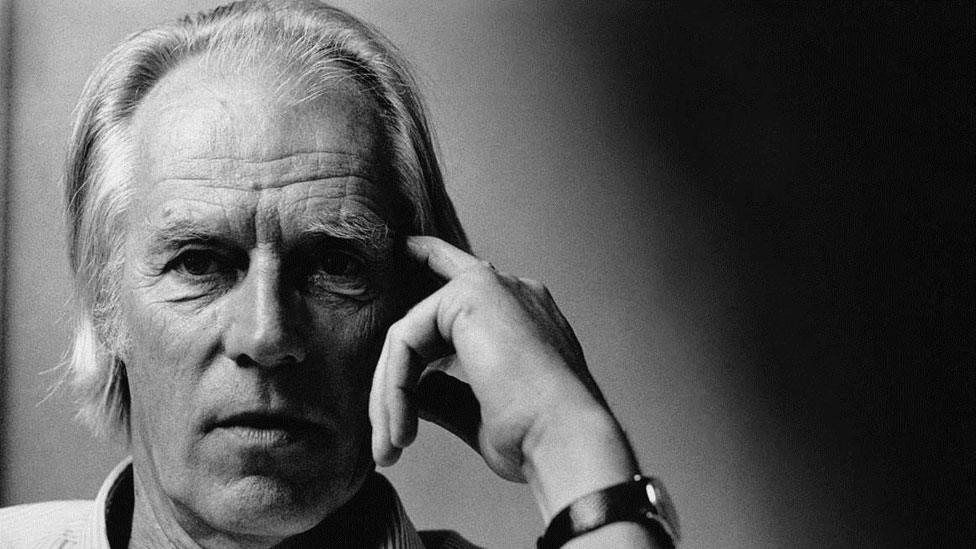
- Published9 March 2016
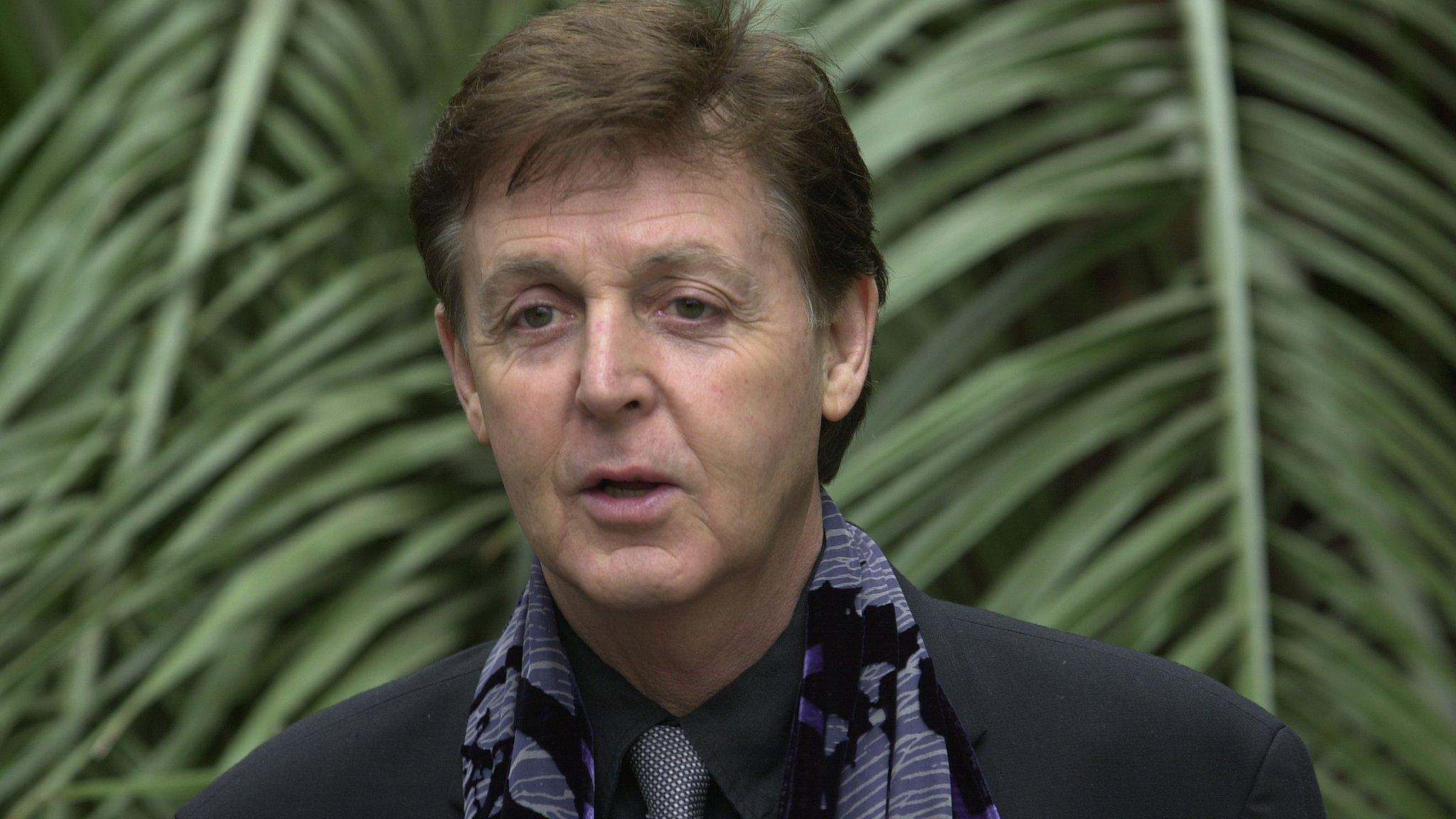
- Published9 March 2016
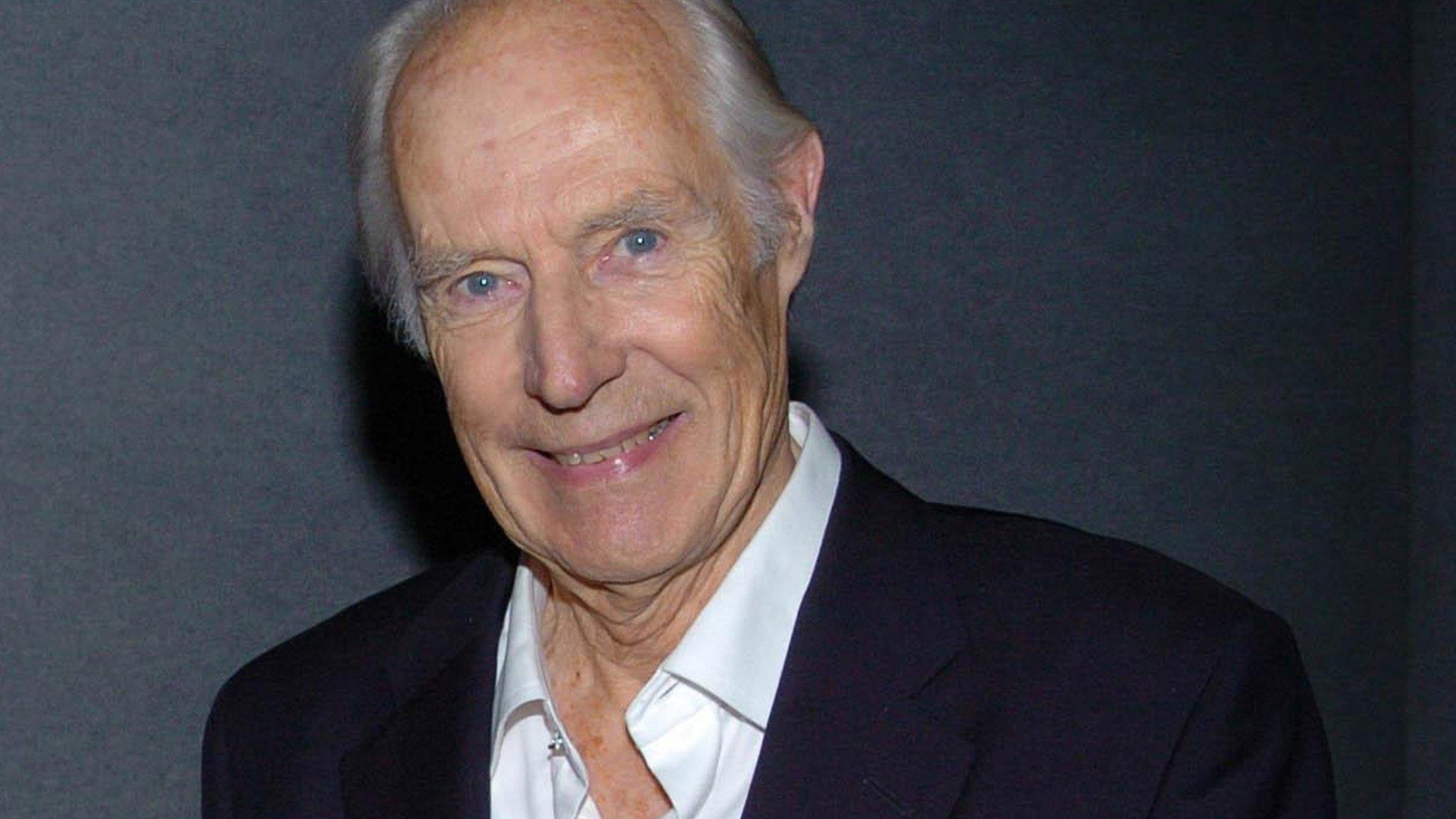
- Published9 March 2016
- Published9 March 2016
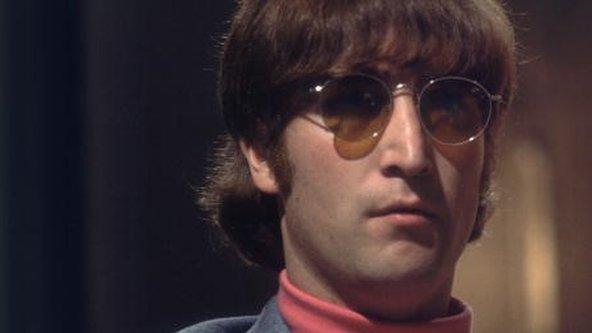
- Published9 March 2016
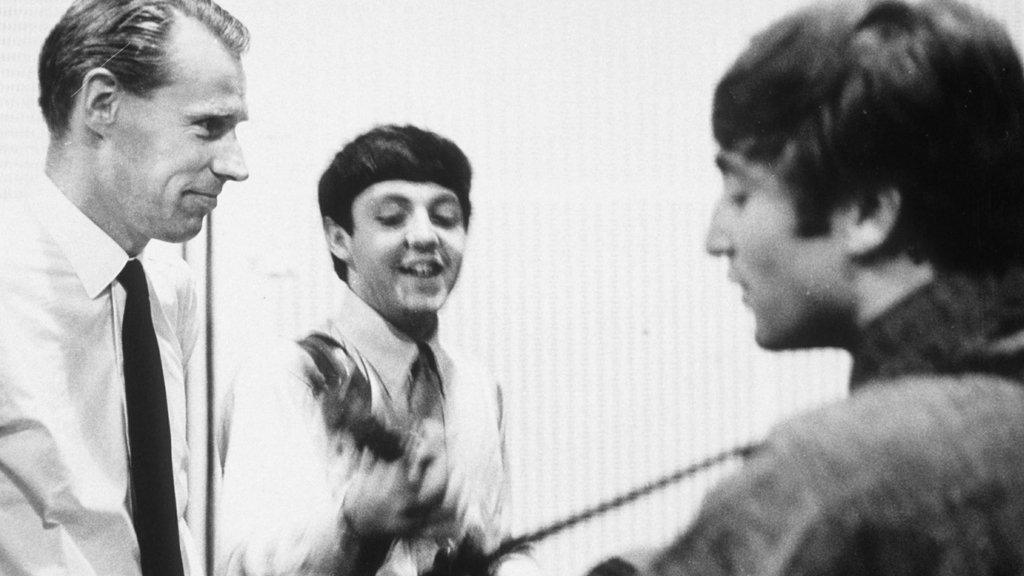
- Published9 March 2016
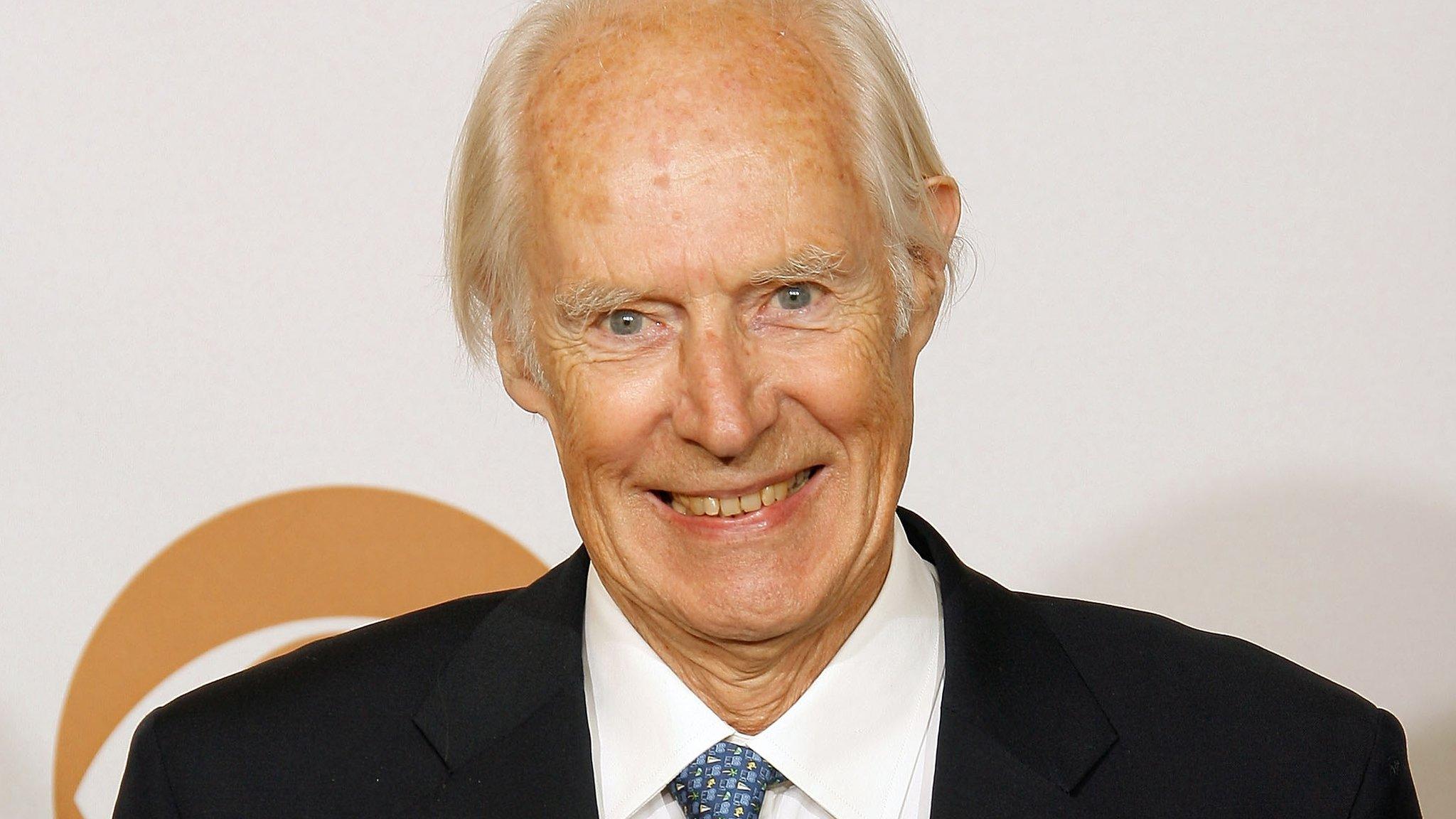
- Published9 March 2016
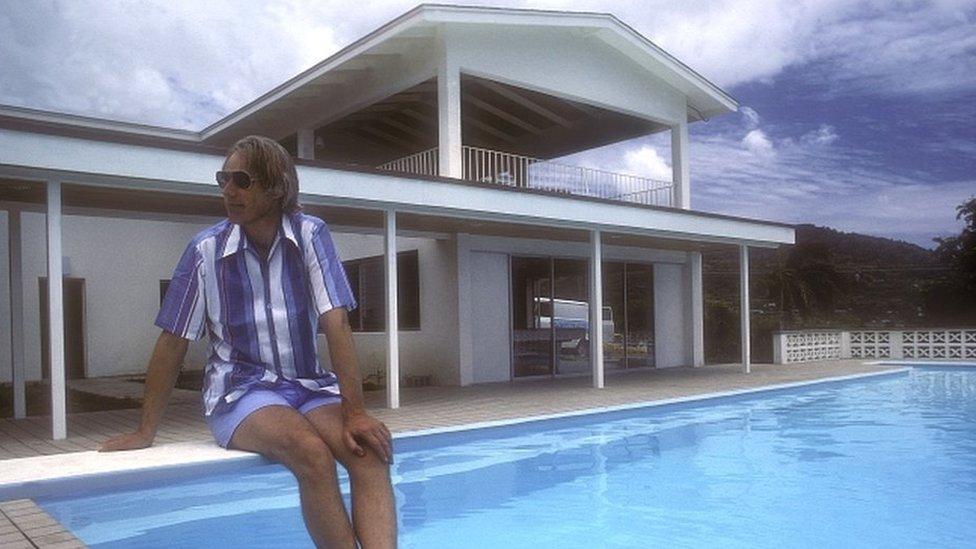
- Published9 March 2016
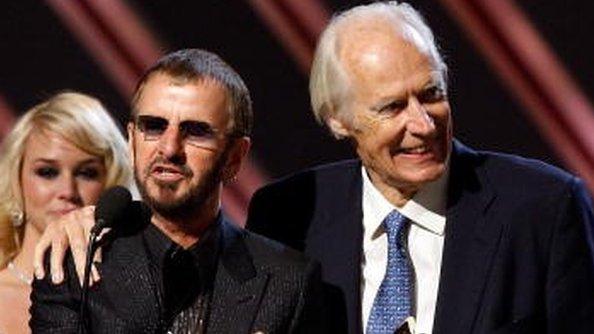
- Published9 March 2016
